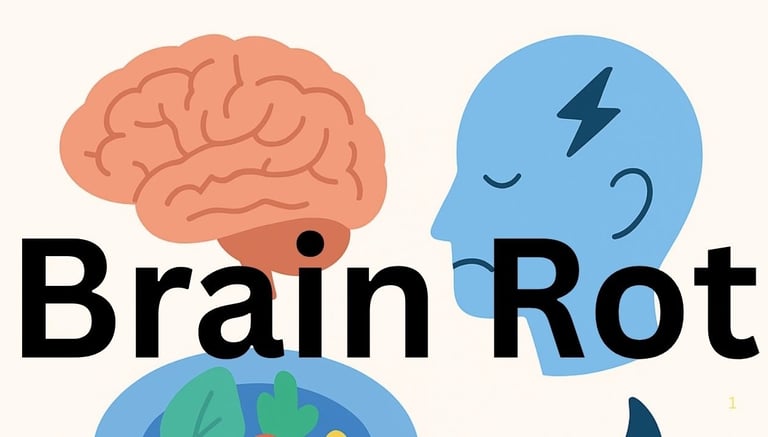
Health is a crown on the heads of the healthy that only the sick can see.

🌿🥗 Maintaining Family Ties in Islam 🤲👨👩👧👦
🌿Learn about the virtue of maintaining family ties in Islam and its impact on a blessed lifespan .
عام
Dr Hassan Al Warraqi
9/8/202514 min read


🌿🥗 Maintaining Family Ties in Islam 🤲👨👩👧👦
🌿Learn about the virtue of maintaining family ties in Islam and its impact on a blessed lifespan, abundant livelihood, and the cultivation of love among relatives, while highlighting the human and social values that the Islamic religion calls for.🥗
Kinship Ties in Islam: A Harmony of Faith and Family
Explore the excellence of maintaining kinship ties in Islam and its impact on a blessed life,
expanded sustenance, and nurturing love among relatives.
It showcases the human and social values that the Islamic faith advocates.
The Concept of Kinship (Silat al-Rahm) in Islamic Law: A Divine Link
Kinship in Islam goes beyond a mere social custom; it is a cornerstone of Islamic ethics and jurisprudence.
Its roots are deeply intertwined with the divine names of God: Ar-Rahman (The Most Gracious) and Ar-Rahim (The Most Merciful).
This study explores this concept, starting from its linguistic foundations and fundamental principles, progressing to direct guidance in the Quran and prophetic traditions (Sunnah),
and ending with a detailed view of its practical applications and precise rulings needed when facing modern challenges.
Evidence confirms that maintaining kinship ties is a mandatory act of worship, a yardstick of a believer's faith, and a catalyst for social well-being.
God promises tangible rewards in this life, like increased wealth and a long life, and spiritual blessings in the Hereafter, including entry into Paradise.
Cutting these ties, conversely known as Qat' al-Rahm, is a grave sin leading to divine curse, deprivation of blessings, and exclusion from Paradise.
The principles of kinship are adaptable, offering guidance on how to handle modern complexities like geographical distance and difficult family relationships while upholding the Islamic values of justice, mercy, and maintaining spirituality.
Chapter 1: Foundations and Linguistic Origins
1.1 Defining Kinship and the Scope of Relatives
The term Silat al-Rahm (صلة الرحم) is a compound Arabic word. Silah (صلة ) comes from the Arabic root (و-ص-ل), meaning to connect two things, while Rahm (رحم) translates to womb.
The concept refers to maintaining bonds originating from the womb, indicating a blood relationship.
As a core Islamic principle, Silat al-Rahm means connecting with relatives, visiting them, and offering aid.
This includes actions like visiting, giving financial and personal support, caring for their needs, and upholding their dignity.
The scope of Arham (relatives) is defined by kinship.
This includes parents, children, siblings, grandparents, uncles, aunts, and cousins.
While in-laws are close through marriage, the main duty of kinship is towards blood relatives.
There is an obligation order placing parents as most sacred.
The Quran and Sunnah order good deeds to parents right after worshipping God, stressing their place in the family structure.
This parents' priority sets a base example for the future generations.
1.2 The Linguistic Link: Ar-Rahm, Ar-Rahman, and Ar-Rahim
A deeper knowledge of kinship comes from studying the linguistic and spiritual link between relatives and God's names.
Rahm, and two of God's most central names, Ar-Rahman, (The Most Gracious) and Ar-Rahim (The Most Merciful), share the same Arabic root (ر-ح-م). This is not a language coincidence but a deep connection.
A Hadith Qudsi narrated by Al-Tirmidhi and Ibn Majah makes this clear:
Abd al-Rahman ibn Awf reported: The Messenger of Allah, peace and blessings be upon him, said that Allah Almighty said,
“I am Allah, I am the Most Gracious. I created the womb and I derived a name for it from My name. Thus, whoever connects with it, I will connect with him. Whoever cuts it off, I will cut him off.”
This elevates the concept from social duty to a direct display of God's mercy on Earth.
Family ties are a physical form of divine mercy. By caring for these ties, one fulfills a social expectation but takes part in and reflects a divine nature.
Maintaining kinship becomes an act of worship connected to one's relation with God.
Neglecting or cutting these ties is refusing this sacred link and insulting mercy.
1.3 The Sanctity of Kinship in Religious Contexts
While kinship is in many religions, Islam views kinship as an element commanded by God.
Some traditions find the creation as relatives, stressing ethics with the non-human world.
In Islam, linguistic link kinship and God's names places this principle at a high standard.
It's not a structure but an order from the Creator, an element of one's devotion.
The Quran and Prophet's guidance confirm it as a sacred, needed for the spiritual and social fabric of a Muslim society.
This spotlights Islam's role in lifting family ties to basics of faith.
Chapter 2: The Divine Command in the Quran and Sunnah
2.1 Quranic Directives and Interpretation
The Quran grants a clear divine order to keep kinship.
One of the most powerful and cited verses is:
O mankind, fear your Lord, who created you from one soul and created from it its mate and dispersed from both of them many men and women.
And fear Allah, through whom you ask one another, and the wombs. Indeed Allah is ever, over you, an Observer. (Quran 4:1)
This links fearing God with kinship sanctity, confirming piety and family harmony are sides of a coin.
The Quran has warnings against cutting kinship, known as Qat' al-Rahm.
So would you perhaps, if you turned away, cause corruption on earth and sever your [ties of] relationship? Those [who do so] are the ones that Allah has cursed, so He has deafened them and blinded their vision. (Quran 47:22-23)
This condemns those who cut ties as cursed, punished with blindness to the truth.
Other verses view those who cut ties as losers and those who break their promise with God, a major sin.
This places cutting ties as a dangerous act in Islam's morality.
2.2 Prophetic Narrations and their Authority
Prophet Muhammad (peace be upon him) boosted the divine order of kinship with his teachings and actions.
A narration found in both Sahih Bukhari and Sahih Muslim shows kinship clinging to God's Throne, saying :
Whoever unites with me, Allah will unite with him; and whoever severs me, Allah will sever him.
This highlights the high status of kinship and that a reward is earned.
Prophetic narrations place kinship as a vital side of a believer.
The Prophet (peace be upon him) said: Whoever believes in Allah and the Last Day, let him maintain good relations with his relatives.
This views kinship as a needed term for full faith.
By linking kinship with faith in God and the Last Day, the Prophet placed it with other faith needs like honoring guests or being silent.
This means one's faith is lacking if this duty is ignored. A man asked the Prophet (peace be upon him) about the best act in Islam and he replied: To believe in Allah and to maintain the ties of kinship.
This places kinship after the vital belief in Islam - monotheism - confirming its role in Islamic morality.
2.3 The Ethical Imperative: The True Connector
One of kinship's deepest sides focuses on keeping ties with those who cut them.
Prophet Muhammad clarified doing this by saying:
The one who maintains ties of kinship is not the one who recompenses the good done to him by his relatives, but he is the one who maintains ties of kinship even when they have been severed by them.
This sets a high morality over social behaviors.
It asks one to place the divine order above ego and an want for fairness.
The spiritual worth of kinship is not in favors, but forgiveness and healing.
This deed's reward is with God not from the relative.
A man told the Prophet (peace be upon him) about relatives who cut him despite his kindness.
The Prophet said that
if you persist in being kind, you are putting hot ashes in their mouths, and you will have divine support over them.
This shows that working in kindness, is a source of spiritual strength and divine favor.
Chapter 3: The Jurisprudential Framework: Obligations and Practical Application
3.1 Categorizing Kin Relationships and Degrees of Obligation
Kinship is not the same with all relatives; it carries values based on the ties.
Prioritized are parents and children, then sibling, then aunts, uncles, and cousins.
Closer ties increases the need to keep it and danger in cutting it.
Scholars agree that connections with direct relatives (Arham) is a duty.
This is important as duty to God goes before parents if they order cutting kin ties.
The duty aligns with one's power and the relative's need.
Connecting with distant kin may be good but cutting ties with close kin is a sin.
A duty is an act to do, which if ignored leads to punishment.
Good act is good but not punished if ditched.
3.2 Scope of Actions for Maintaining Kinship
Kinship is a wide concept with many actions, ranging from simple to demanding.
The need to avoid being viewed as cutting ties is in keeping a form of contact but a simple greeting or call.
The range goes beyond this.
Higher tiers and good actions are in visiting relatives, asking of them, and giving support.
Prophet Muhammad told that charity for relatives earned a bigger reward: a dual act.
This principle is a reminder that charity start at home.
Forgiveness and healing are high actions in kinship when someone has wronged another.
Chapter 4: Rewards in This Life and the Hereafter
4.1 Blessings of This World: Increase in Sustenance and Longevity
Islamic teachings tell tangible worldly rewards for those who keep kin ties.
Narrations tell that kinship leads to wealth expansion and longevity.
Prophet Muhammad (peace be upon him) said:
Whoever would like his provision to be increased and his life to be extended, let him uphold the ties of kinship.
This pledge can be viewed with lenses.
Literally, it is a divine rule.
Scholars note that kinship can expand years whereas cutting ties reduces it.
Human acts affect the divine order.
Deeper, the rewards show gains from social relations.
A strong family offers support, health, less stress, and aid when in need.
Provisions also includes aspects of life like health, knowledge, peace, honor, and family.
The pledge of wealth and life is a fact: a divine blessing, a social benefit, and spiritual increase.
4.2 Spiritual Rewards: The Path to Paradise
Besides blessings in this realm, kinship is a direct path to spiritual rewards.
This gains God's peace, weighed greatly on Judgment Day.
Prophet Muhammad (peace be upon him) said:
The cutter of the ties of kinship will not enter Paradise.
Conversely, keeping ties is to Paradise.
The story of kinship clinging to the Throne and declaring divine support for those who keep it shows ties with family and divine favor.
4.3 The Severe Consequences of Severing Kinship
Rewards exist for keeping ties, there are as bad effects in cutting them.
Cutting ties is a big sin in Islam, being second after associating partners with God.
This sin carries a penalty: a worldly penalty and a next life penalty.
This is among sins that God punishes for with another.
Effects are curses from God, wealth decrease, and prayer refusal.
More important, those who cut ties will not Paradise.
This highlights dangers in ignoring an order and the key side that kin ties play in relation with God and humanity.
Chapter 5: Contemporary Challenges and Nuances
5.1 Dealing with Geographical Distances and Modernity
In a world where people travel, families spread across land.
This is a challenge as kinship meant physical visits.
The aim of caring is still fitting.
The use of tech like calls, video chats, and messaging are ways to play this.
The use of tech has a principle the law trumps letter.
The aim is to prevent cutting ties, and any means keeps connection.
Living from may keep kinship with good contact, if visits are hard or not doable.
This keeps the order in all era.
5.2 Reconciliation with Difficult and Abusive Relatives
The most hard side of kinship applies ties with family that are hard.
The narration warn from cutting ties makes believe no exceptions apply but it is a view not whole.
A principle dictates no harm.
Legal rules offer a path.
It is right and needed to distance one from kin if sticking will be harmful for one's religion, self, or mind.
This is not cutting ties.
Direction is : Limit communication with safe calls, be patient as it earns thanks for aiding them, pray for them, ask support from others.
5.3 Maintaining Ties with Non-Muslim Relatives
The rule of keeping ties works for non-Muslim kin.
The Quran and Sunnah state respect is granted to kin despite faith.
But if they endeavor to make you associate with Me that of which you have no knowledge, do not obey them but accompany them in [this] world with appropriate kindness and follow the way of those who turn back to Me [in repentance].
Then to Me will be your return, and I will inform you of what you used to do. (Quran 31:15)
Though believers should not overstep beliefs, kindness in good measure should exists.
Being good earns the reward.
With good act, behavior becomes a way of inviting.
This act of ties turn into a link where a muslim may soften the hearts of the kin and guide them to islam.
This works with islam's view of mercy and provides way for muslims to live near nonbelievers with no harm to their beliefs.
Conclusion: Kinship as a Cornerstone of a Just Society
Kinship is not a behavior but a need in Islam by building a fair society.
Originating from names of mercy, this makes family relations by keeping a muslim's piety and joining act in it.
Legally, Kinship has and order for duties and way of how it plays.
Promises that it is not rewards in both world but also it leads to a spiritual and earthly side.
This ability to connect with events like distant homes or evil ways in family confirms it it is timeless.
In the end, kinship ask believers to care for ties in a society.
It gives to a duty by keeping closeness with God and adds benefits to humanity.
—--------------------------------------------------------
Frequently Asked Questions (FAQs) on Maintaining Family Ties (Silat al-Rahm) in Islam
Based on the provided content exploring the concept of kinship ties in Islam, here is a comprehensive FAQ section.
These questions address key aspects of the topic, including definitions, religious foundations, practical applications, rewards, challenges, and contemporary relevance.
The answers draw directly from the Quranic, prophetic, and jurisprudential insights outlined in the text.
1. What is Silat al-Rahm, and why is it important in Islam?
Silat al-Rahm refers to maintaining bonds with blood relatives (those connected through the womb, or "rahm").
It goes beyond social courtesy to become a core Islamic ethical and jurisprudential principle, rooted in the divine names Ar-Rahman (The Most Gracious) and Ar-Rahim (The Most Merciful),
sharing the same Arabic root (ر-ح-م). It is an act of worship that reflects God's mercy on Earth, fosters social harmony, and is a measure of a believer's faith.
Neglecting it (Qat' al-Rahm) is a major sin, while upholding it brings divine blessings like increased sustenance, longevity, and entry into Paradise.
2. Who are considered "relatives" (Arham) under Silat al-Rahm?
Relatives include blood kin such as parents, children, siblings, grandparents, uncles, aunts, and cousins.
Parents hold the highest priority, followed by closer family members.
In-laws are connected through marriage but are secondary to blood ties.
The obligation is strongest toward direct relatives, and the Quran emphasizes honoring parents immediately after worshiping God.
3. What is the linguistic and spiritual connection between kinship and God's names?
The term "Rahm" (womb) shares its root with Ar-Rahman and Ar-Rahim, symbolizing mercy.
A Hadith Qudsi (narrated by Al-Tirmidhi and Ibn Majah) states that God created the womb and named it from His own names, promising to connect with those who maintain ties and sever from those who cut them.
This elevates kinship from a family duty to a manifestation of divine mercy, making it an integral part of faith.
4. What does the Quran say about maintaining family ties?
The Quran commands fearing God and upholding kinship ties, as in Surah An-Nisa (4:1): "Fear Allah, through whom you ask one another, and the wombs.
" It warns against severing ties in Surah Muhammad (47:22-23), describing it as corruption leading to divine curse, spiritual blindness, and exclusion from Paradise.
Kinship is tied to piety, justice, and fearing God as an Observer.
5. What do prophetic traditions (Sunnah) teach about Silat al-Rahm?
The Prophet Muhammad (peace be upon him) emphasized it as essential to faith.
In Sahih Bukhari and Muslim, he said kinship "clings to the Throne" of God, and maintaining it earns divine connection.
He stated: "Whoever believes in Allah and the Last Day, let him maintain good relations with his relatives."
It ranks highly among good deeds, just after belief in God, and includes forgiving those who sever ties, as the true maintainer persists in kindness even if unreciprocated.
6. Is maintaining kinship ties an obligation (fard) or just recommended?
It is obligatory (fard) toward close blood relatives, especially parents and children, as neglecting it leads to sin and punishment.
Degrees vary by closeness: stronger for immediate family, recommended (mustahabb) for distant kin.
Cutting ties with close relatives is a grave sin, second only to associating partners with God in severity.
7. What actions count as maintaining kinship ties?
Actions range from basic contact (e.g., greetings, calls) to prevent "cutting ties," to proactive support like visiting, financial aid, emotional care, and forgiveness.
Charity to relatives doubles the reward.
Even simple inquiries about their well-being fulfill the duty.
The focus is on connection, support, and upholding dignity, aligned with one's ability.
8. What are the worldly rewards for maintaining family ties?
The Prophet (peace be upon him) promised increased provision (sustenance, including wealth, health, and peace) and extended life:
"Whoever would like his provision to be increased and his life to be extended, let him uphold the ties of kinship."
This manifests through social support networks that reduce stress, provide aid, and enhance overall well-being.
9. What spiritual rewards does Islam promise for Silat al-Rahm?
It leads to God's mercy, weighs heavily on Judgment Day, and secures entry into Paradise.
The Prophet said: "The cutter of the ties of kinship will not enter Paradise.
" Kinship "intercedes" for the believer, and maintaining it reflects divine mercy, strengthening one's relationship with God.
10. What are the consequences of severing family ties (Qat' al-Rahm)?
It is a major sin, cursed by God, leading to decreased sustenance, shortened life, unanswered prayers, and exclusion from Paradise.
The Quran describes it as corruption and spiritual blindness.
It insults divine mercy and disrupts social harmony, with punishments in both worlds.
11. How does one maintain ties with difficult or abusive relatives?
Islam prohibits harm (la darar wa la dirar), so physical or emotional distance is permissible if contact causes damage to faith, self, or mental health—this is not "cutting ties."
Instead, limit to safe communication (e.g., occasional calls), pray for them, forgive, and seek support from others.
Patience in such cases earns greater reward, like "pouring hot ashes" on wrongdoing through persistent kindness.
12. How can Muslims maintain family ties in modern times, like with geographical distance?
Modern challenges like migration are addressed by the spirit of the law over the letter.
Use technology (calls, video chats, messaging) for regular contact.
Virtual visits fulfill the duty if physical ones are impossible.
The goal is emotional and supportive connection, adapting Islamic principles to contemporary life without neglecting the core obligation.
13. Does Silat al-Rahm apply to non-Muslim relatives?
Yes, kindness and appropriate companionship are required, even if they are non-Muslims, as per Quran 31:15: "Accompany them in this world with appropriate kindness."
Do not obey if they demand disbelief, but maintain ties through good conduct, which may invite them to Islam.
This reflects Islam's emphasis on mercy without compromising faith.
14. How does maintaining kinship ties contribute to a just society?
It builds cohesive communities by promoting mercy, justice, forgiveness, and support networks.
As a divine command intertwined with faith, it fosters social well-being, reduces corruption, and mirrors God's mercy.
In a just Islamic society, strong family ties enhance spiritual growth, economic stability, and interpersonal love.
15. Who is Dr. Hassan Al-Waraqi, and what is his contribution to this topic?
Dr. Hassan Al-Waraqi is a physician and researcher specializing in simplifying medical and legal information via h-k-e-m.com.
He combines scientific expertise with spiritual insights to promote physical and spiritual health, emphasizing Silat al-Rahm as an act of worship that builds cohesive societies.
For further reading, refer to the full article or consult authentic Islamic sources like the Quran, Sahih Bukhari/Muslim, and scholarly works on fiqh (jurisprudence).
—--------------------------------------------------------
Dr. Hassan Al-Waraqi, a physician and researcher specializing in simplifying medical and legal information via h-k-e-m.com, combines scientific expertise with spiritual insight to provide content that promotes physical and spiritual health, highlighting the importance of maintaining family ties in Islam as an act of worship and a means of building a cohesive society.https://h-k-e-m.com/-maintaining-family-ties-in-islam-
https://h-k-e-m.com/-maintaining-family-ties-in-islam-
Brain Rot and Voluntary Fasting: What's the Relationship?
🧠 Keywords
Brain Rot, Mental Deterioration, Voluntary Fasting, Intermittent Fasting, Neurodegeneration, Neuroinflammation, Autophagy, Alzheimer's, Brain Toxins, Brain Protectionhttps://h-k-e-m.com/-brain-rot-and-voluntary-fasting-whats-the-connection
-----------------------------------------------------------------------------------------------
















